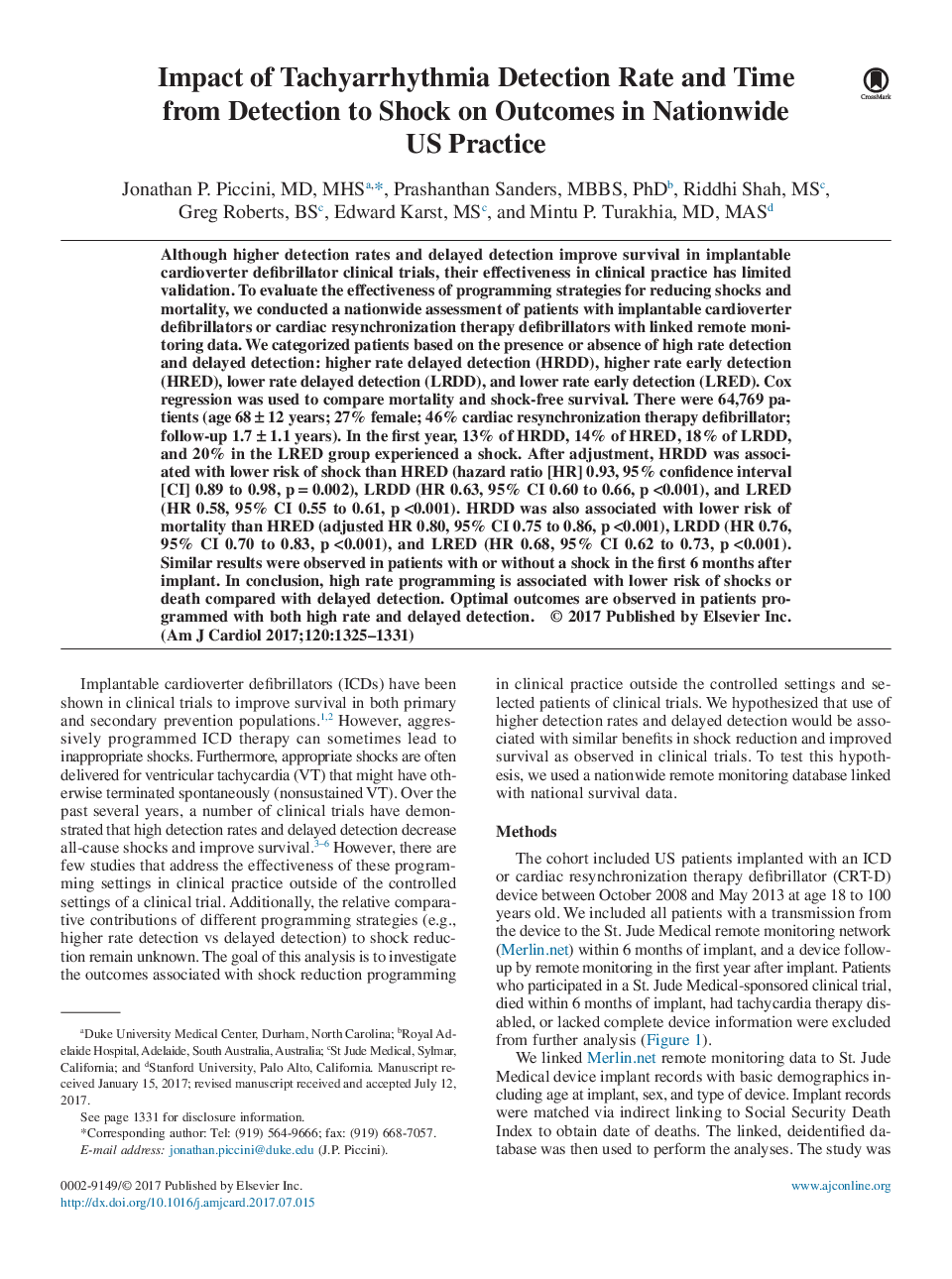| Article ID | Journal | Published Year | Pages | File Type |
|---|---|---|---|---|
| 5594644 | The American Journal of Cardiology | 2017 | 7 Pages |
Abstract
Although higher detection rates and delayed detection improve survival in implantable cardioverter defibrillator clinical trials, their effectiveness in clinical practice has limited validation. To evaluate the effectiveness of programming strategies for reducing shocks and mortality, we conducted a nationwide assessment of patients with implantable cardioverter defibrillators or cardiac resynchronization therapy defibrillators with linked remote monitoring data. We categorized patients based on the presence or absence of high rate detection and delayed detection: higher rate delayed detection (HRDD), higher rate early detection (HRED), lower rate delayed detection (LRDD), and lower rate early detection (LRED). Cox regression was used to compare mortality and shock-free survival. There were 64,769 patients (age 68â±â12 years; 27% female; 46% cardiac resynchronization therapy defibrillator; follow-up 1.7â±â1.1 years). In the first year, 13% of HRDD, 14% of HRED, 18% of LRDD, and 20% in the LRED group experienced a shock. After adjustment, HRDD was associated with lower risk of shock than HRED (hazard ratio [HR] 0.93, 95% confidence interval [CI] 0.89 to 0.98, pâ=â0.002), LRDD (HR 0.63, 95% CI 0.60 to 0.66, pâ<0.001), and LRED (HR 0.58, 95% CI 0.55 to 0.61, pâ<0.001). HRDD was also associated with lower risk of mortality than HRED (adjusted HR 0.80, 95% CI 0.75 to 0.86, pâ<0.001), LRDD (HR 0.76, 95% CI 0.70 to 0.83, pâ<0.001), and LRED (HR 0.68, 95% CI 0.62 to 0.73, pâ<0.001). Similar results were observed in patients with or without a shock in the first 6 months after implant. In conclusion, high rate programming is associated with lower risk of shocks or death compared with delayed detection. Optimal outcomes are observed in patients programmed with both high rate and delayed detection.
Related Topics
Health Sciences
Medicine and Dentistry
Cardiology and Cardiovascular Medicine
Authors
Jonathan P. MD, MHS, Prashanthan MBBS, PhD, Riddhi MS, Greg BS, Edward MS, Mintu P. MD, MAS,
